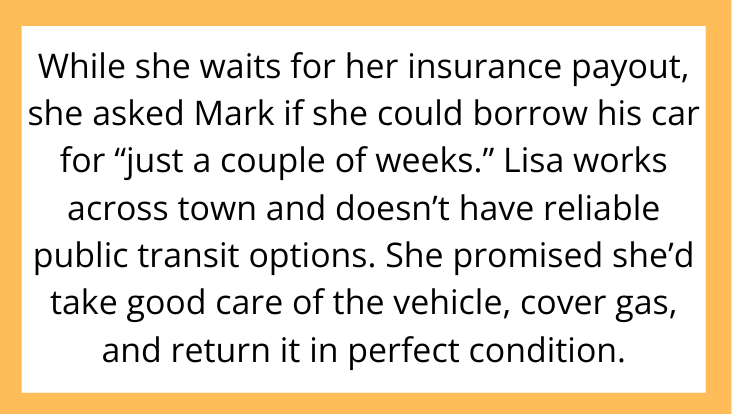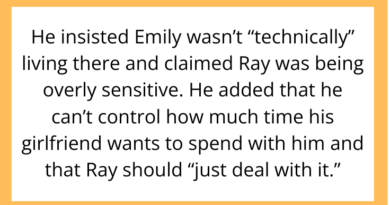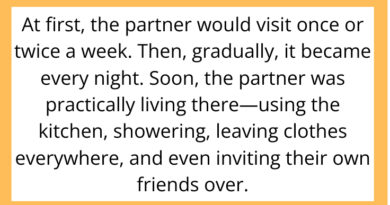AITAH for Not Wanting to Lend My Car to My Best Friend After Her Accident?
When a close friend goes through a crisis, you naturally want to help. But what happens when helping them feels like risking your own stability? In today’s AITAH scenario, one driver’s refusal to lend their car has split opinions—and exposed deeper tensions about boundaries, entitlement, and trust.
Let’s dive into this real-life dilemma to see whether standing firm makes you heartless—or simply sensible.
The Situation: A Car Crash and a Big Ask

The original poster—let’s call him Mark—shared his story on r/AITAH. Mark, 28, owns a reliable, fully paid-off car that he uses daily to get to work. His best friend, Lisa, 27, was recently in a minor accident that totaled her vehicle. Thankfully, no one was hurt, but Lisa was left without transportation.
While she waits for her insurance payout, she asked Mark if she could borrow his car for “just a couple of weeks.” Lisa works across town and doesn’t have reliable public transit options. She promised she’d take good care of the vehicle, cover gas, and return it in perfect condition.
But Mark felt uncomfortable with the request. His job requires him to be on call occasionally, and he needs his car available at all times. He also confessed he’s nervous about lending it out, especially since Lisa has been in two accidents over the past three years.
When Mark declined, Lisa became furious. She accused him of being selfish, unsupportive, and valuing a “stupid car over their friendship.” She even hinted she might reconsider their friendship if he didn’t step up in her time of need.
Feeling guilty but resolute, Mark asked the internet: Am I the villain for saying no?
The Case for Mark: Boundaries Are Not Betrayal

Many commenters on r/AITAH quickly sided with Mark. Their reasoning was simple: lending a car isn’t the same as lending a sweater.
Why Mark’s Decision Makes Sense
-
Dependence on the Vehicle
Mark uses the car daily to get to work. If Lisa damages it or it breaks down, Mark’s livelihood could be at risk. -
History of Accidents
Lisa’s driving record understandably makes Mark cautious. Past behavior is often the best predictor of future behavior. -
Personal Comfort and Boundaries
If someone feels uneasy lending out an expensive possession, that feeling alone is enough reason to say no.
One of the most upvoted comments put it bluntly:
“You don’t owe anyone access to your car. Period.”
The Case for Lisa: Friendship Means Showing Up

On the other side, a smaller but vocal group of commenters empathized with Lisa.
Why Lisa Might Feel Betrayed
-
Emergencies Test Relationships
From Lisa’s perspective, this was her lowest moment. She might believe true friends step up when it’s inconvenient. -
Short-Term Help
Lisa wasn’t asking to keep the car indefinitely—just until her insurance settled. -
Feeling Unsupported
Lisa may see Mark’s refusal as proof he doesn’t care enough to make sacrifices.
These commenters argued that if the roles were reversed, Lisa would have gladly loaned her car. To her, Mark’s refusal might have felt like a personal rejection rather than a practical limitation.
The Bigger Question: Are We Obligated to Risk for Loved Ones?

This AITAH scenario highlights an uncomfortable reality: there is no one-size-fits-all answer. Every friendship has unspoken rules about what support looks like.
Some friends share everything—cars, money, even homes—without hesitation. Others set firm boundaries, believing that protecting their own stability is the best way to be a good friend in the long run.
At the heart of this issue lies a philosophical question: Does love mean always saying yes?
For Mark, the answer was no. For Lisa, it was yes—and that mismatch caused the fallout.
Alternatives Mark Could Offer

Even if Mark didn’t feel comfortable lending his car, some commenters suggested middle-ground solutions:
-
Offering to drive Lisa to work when possible
-
Contributing toward ride-sharing costs
-
Helping her find a rental or a temporary carpool
-
Researching short-term leasing options
These gestures show care without requiring Mark to risk his own security.
How to Handle Guilt When You Set Boundaries

Many people in the thread related to Mark’s guilt. After all, it’s hard to watch someone you love struggle. But guilt doesn’t mean you’re wrong—it just means you care.
Here are a few reminders if you ever find yourself in a similar spot:
-
Boundaries protect relationships. When you act out of resentment or fear, it damages trust.
-
You don’t need to justify every “no.” If you’re uncomfortable, that’s reason enough.
-
Offer what you can. If you can’t give someone exactly what they ask, you can still support them in other ways.
Verdict: You’re Not the Villain for Saying No

In this AITAH story, most agreed that Mark was not the villain. Lending a car is a major risk—especially if your livelihood depends on it. While Lisa’s frustration was understandable, her reaction crossed into entitlement when she tried to guilt Mark into compliance.
Supporting a friend doesn’t mean ignoring your own needs. It’s possible to care about someone deeply and still maintain healthy boundaries.



